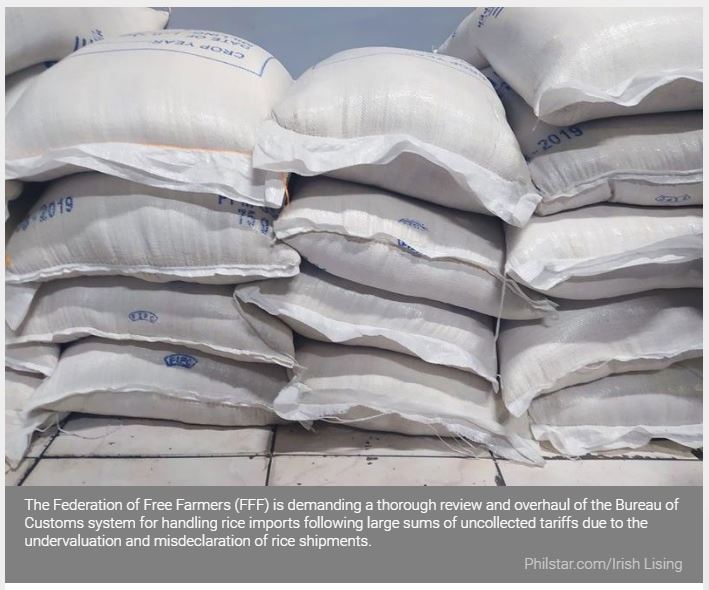Philippines: Overhaul of rice import system sought
MANILA, Philippines — Local farmers are calling for a revamp of the country’s rice import system following the undervaluation and misdeclaration of rice shipments worth nearly P1 billion from January to April.
The Federation of Free Farmers (FFF) is demanding a thorough review and overhaul of the Bureau of Customs (BOC)’s system for handling rice imports following large sums of uncollected tariffs due to the undervaluation and misdeclaration of rice shipments.
Customs data showed a total of 766,000 million metric tons of rice were imported from January to April with tariff collections amounting to P4.8 billion.
However, a study conducted by FFF indicates that tariff collections could have been higher by P890 million had the government made the proper assessment of rice import values.
Customs assistant commissioner Vincent Maronilla confirmed FFF’s claims and revealed that importers were required to post bonds when their declared import prices were lower than the agency’s reference prices.
However, Maronilla said the process for validating cases of undervalued imports and the corresponding forfeiture of bonds had been delayed amid the pandemic.
The FFF called for a full and detailed listing of the bonds posted by importers and an accounting of collections from the tariff shortfalls so far.
The group stressed that the quarantine restrictions arising from the pandemic cannot excuse the Customs for its inaction on cases dating as far back as March 2019.
Aside from undervaluing free on board prices, which is the price of imports at the point of origin, the FFF said importers had also grossly misdeclared their freight and insurance costs which are included in the computation of tariffs.
“Eighty percent of rice imports in 2020 were placed under a tariff heading for ‘broken rice’ which includes a subheading for rice ‘of a kind used for animal feed.’
Others were classified as ‘brown rice,’ even if they were actually white and well-milled,” FFF national manager Raul Montemayor said.
“It is possible that some imports were being misclassified under tariff lines that had lower reference prices so as to conceal attempts to undervalue FOB prices,” he said.
Montemayor explained that a significant volume of imports did not indicate any rice grade, thus making it impossible to determine their proper tariff classification and corresponding reference price.
“This makes it easier for a Customs examiner to accept whatever price the importer declares and/or to arbitrarily place the imports under any classification code,” he said.
Source: https://www.philstar.com/business/2020/06/23/2022770/overhaul-rice-import-system-sought


 English
English




